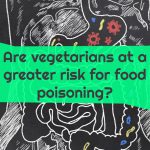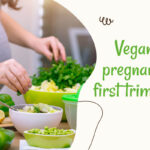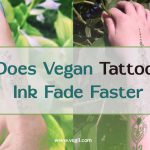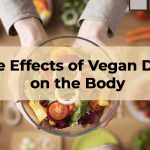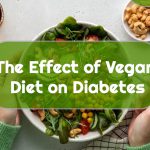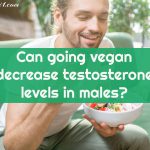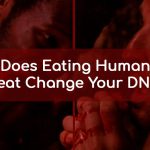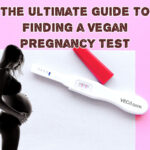Can vegan babies drink breast milk? Don’t worry, I’ll tell you
Breast milk is OK for ethical vegans, so vegan babies can drink breastmilk
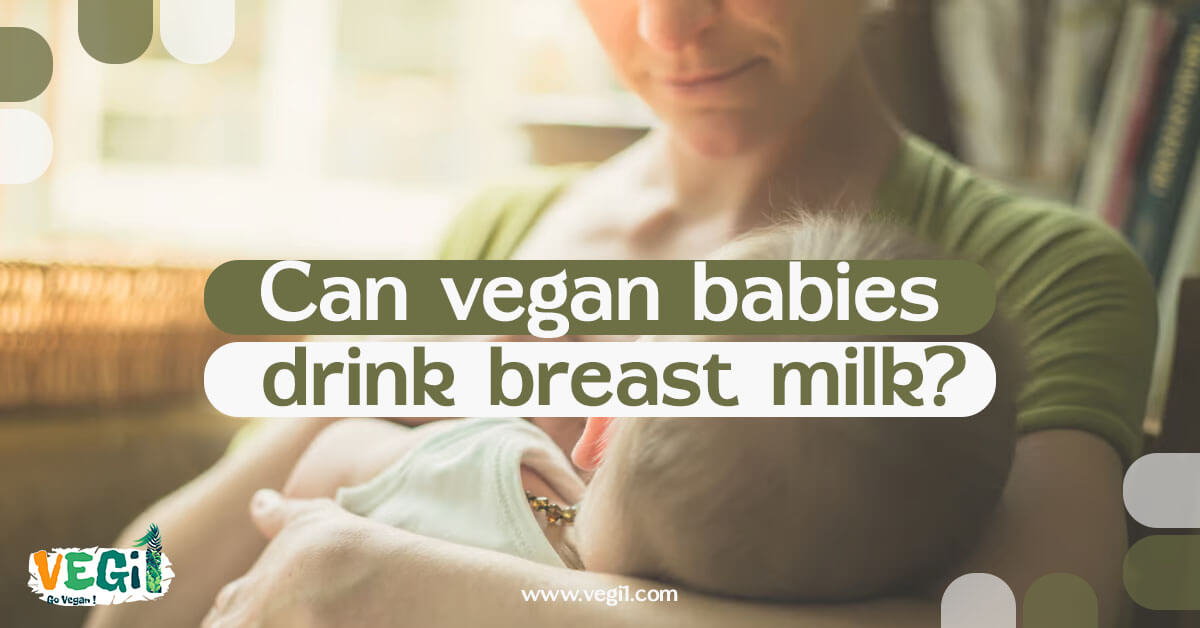
Hi, I’m ELi and it’s 1:30 am. Are you asking why I am not sleeping now? stay with me.
Today, when I was shopping for my one-year-old daughter, Jessica, at the grocery store, one of my friends saw me and said, “ELi, do you think your daughter will choose to be vegan like you?” I said I think yes. He said, “but you have been feeding your own daughter with Miiiiiiiiilk for a year!!! and went.
I had a bee in my bonnet and with the voice of Jennifer Jennifer saying John, my brother, I came to myself and reviewed the thoughts that came to my mind and asked myself, “is breast milk also considered dairy? Isn’t breast milk vegan? Don’t…
To make sure that I followed the vegan rules and chose the right path this year, I spent the middle of the night to searching and finding answers of my questions and sharing the results with you.
In this article you will read:
What is breast milk?
After Jessica was born, I started breastfeeding on the advice of my doctor and nutritionist. Even though my medical team knew I was a vegan, they said that a vegetarian diet was enough to meet my and Jessica’s nutritional needs. During my searches, I realized that mother’s milk or breast milk is one of the wonderful potions in nature.
Breast milk is rich in vitamins, antibodies, fat and proteins, which in the form of a systematic force, develops the baby’s nervous system and protects her against viruses and infections and reduce the risk of asthma and allergies and autoimmune diseases in adulthood. Interestingly, the percentage of nutrients in breast milk is intelligently adjusted according to the needs of the child at different ages.
A Guide to Vegan Foods During Pregnancy
Is breast milk vegan?
Human breast milk, like all other mammalian breast milk, is dairy. At first sight, all dairy products are prohibited in the vegan diet. But I was a little more precise and said, “Why am I vegan? What is my vegan philosophy and what ethics do I adhere to?”
I realized that there are three categories of veganism in society:
- Dietary vegans: tend to avoid any product that exploits animals for human consumption. These people often choose such a diet for their health with a seasoning of animal protection.
- Ethical vegans: these people have gone one step further and, in addition to food, do not use any other product that involves animals to meet human needs. They avoid keeping animals in cages and boycott zoos.
- Environmental vegans: These people choose the vegan lifestyle to reduce the carbon footprint in the environment. This choice helps to restore the planet.
So why vegans don’t drink milk?
Vegans don’t eat any kind of animal meat, neither do they consume any animal product.
The ethical reason we vegans don’t even allow ourselves to eat any animal product is the animals’ suffering.
Cows really suffer from being milked constantly.
And that’s not the worst part!
There are other cruel acts.
The next heading is about the harsh realities of dairy industry.
The Dark Secret Behind Dairy Industry
Basically, by injecting sperm they try to artificially impregnate the cows so they go through a cycle that puts them in more milk production.
Also, nowadays they inject hormones to the cows so they produce more milk and that really messes up their system.
They are treated badly since the day they enter the world.
Cows most often develop painful medical conditions.
Every mammal produces milk only for their own baby just like humans.
But now think about cows, do they only produce milk for their baby?
Yes, they only produce it for their babies not for humans but what do humans and animal farms do?
Shortly after birth, calves are taken away from their mother and they will never see each other again.
Cows produce milk for their babies but humans take their milk and sell it.
The Animalequality.org explains this condition this way:
“After being torn away from their mothers, calves will spend much of their lives in extreme confinement. In fact, most will spend the first 2 to 3 months of life confined in lonely barren hutches, fed a diet of milk replacer while humans drink the milk intended for them.”
Dairy Industry’s Cruel Acts
Actually, there are more cruel acts left behind and the ones that were mentioned earlier aren’t the worst ones.
-
Branding
Farmers heat up iron in fire and burn the flesh of young cows.
-
Tail docking
This is another act of cruelty by dairy industry.
They tend to cut or remove the tails of the cows in different ways.
-
Dehorning
As you can see in the name they remove the cows’ horns.
A cow’s horns are full of blood and hypersensitive nerve endings and it makes the action and the pain way worse.
-
Slaughtering
There is slaughtering in the dairy industry too.
Some people think dairy companies don’t kill cows because they provide meat but that’s not true.
The Animalequality.org website also brings the brutality of the dairy industry to the table.
Cows in the dairy industry face the same fate as those in the meat industry!
- They will be killed when their milk production declines.
- No cow will actually live their natural 25-year-old lifespan.
- 20% of the beef in the butcheries comes from the dairy industry cows.
-
Cull Dairy Cows
Around 560,000 cull dairy cows are slaughtered every year.
According to Worldanimalprotection.ca website:
There are 1.4 million dairy cows in production throughout Canada. These cows are artificially inseminated only to have their calves taken away from them immediately after birth so that their milk can be sold for human consumption. They are milked repeatedly until they stop lactating, and the process is started all over again.
Cull dairy cows are the cows that are no longer able to get pregnant again due to health problems and because of that they become useless to the industry and these cows no longer useful to keep around, so they will be slaughtered.
Each year, 30-40% of the total dairy cow population becomes “cull cows” and that is close to 560,000 dairy cows that are slaughtered annually.
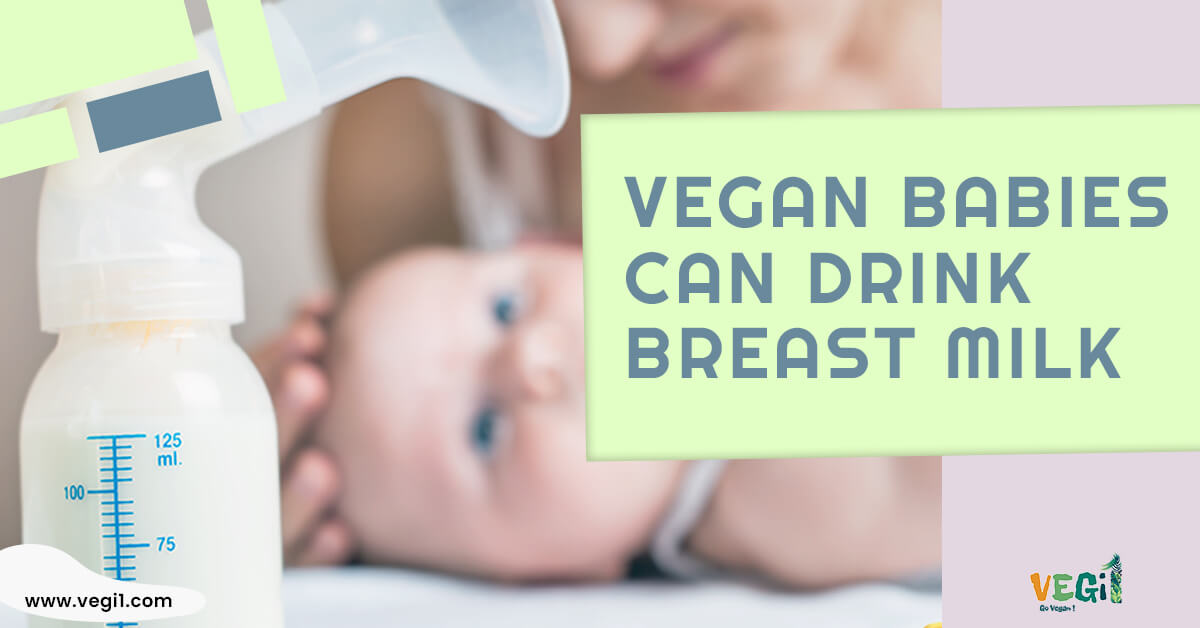
Cow’s milk isn’t vegan, but my milk is vegan
Humans have been using animals for their own benefit for centuries. He has given the name of these animals as domestic animals and deceives them with sentences like: “You and I are friends and we must serve each other or you are different from wild animals and you have grown in my arms since you were born.” to take advantage of them. If that cow of my grandfather’s farm opened its mouth to speak out, would it agree to give me the milk that belonged to its calf? I doubt it. I think that calf with a kind and oppressed face will look at me like an exploiter when she understands that I will eat her share.
Therefore, since we use animals, against their will and sometimes with conscious or unconscious torture, in order to secure our interests, it is against ethics and does not follow vegan laws. But because I give my daughter my breast milk with full consent, it does not contradict the vegan rules. If Tarzan was also a vegan, because his gorilla mother breastfed him with her own consent, he could be an exemplary vegetarian and a role model for children.
Now that we have come to the conclusion that the use of breast milk is vegan, I will answer some frequently asked questions about this, which I obtained according to the discussions of the medical team and my own searches.
Is the vegetarian diet a complete and sufficient diet?
In today’s nutritional references, a well-planned vegetarian diet is suitable for all stages of life, including pregnancy, breastfeeding, infancy, childhood, adolescence, and athletes.
Vegan diets don’t contain anything toxic and that’s why they are called plant-based and there is no health risk for eating plants or even trying to base the majority of a diet on plants.
Humans can be vegan from the early stages of their life because vegan diets are suitable for everyone from babies to adults.
Are Vegan Diets Safe for Babies?
Yes, vegan diets are safe for most newborn babies.
Also, it’s good to know that the best food for a baby is breastmilk and it is absolutely ok to feed your own baby with your milk because it truly showcases the bond between the mother and the baby.
Plus, there are vegan breastmilk formulas out there for babies who can’t drink breastmilk, mainly because of the cons of animal milk or breastmilk alternatives that are made of cow milk and formulated with chemicals to help mothers who can’t breastfeed their babies.
Is Breastmilk Compatible with Vegan Lifestyles?
Yes definitely, human milk is for humans and every mammal’s milk is for their babies and that’s the point of veganism.
There is nothing wrong with breastfeeding your own baby and it’s not even against morals.
Some people take it further by asking questions like: is it morally ok to breastfeed your children if you are a vegan?
The answer is yes; besides the morality, breastfeeding doesn’t even hurt other animals or creatures and it’s not a threat to earth because it doesn’t have to go through the procedures like cow milk. It doesn’t need pasteurizing, packaging and other stuff.
Even if a mother can’t breastfeed her own baby, she can get breastmilk from other mothers and that’s completely ok.
These are the side effects of baby formulas that are made of cow milk:
Coughing and trouble in breathing with vomiting and diarrhea and so many different health threatening outcomes.
Important nutrients in a vegetarian diet
All mothers need certain nutrients to ensure that breast milk provides adequate nutrition to their babies without harming their own bodies. Every breastfeeding mother (including vegetarian mothers) should make sure that her diet contains iron, calcium, vitamin C and vitamin B12, vitamin D and protein. Some of these nutrients are harder to find in plants than in animal foods.
This means that a new mother following a vegetarian diet needs to make sure that she eats certain foods as well as taking the right supplements to manage her nutritional needs.
Before continuing, please note that I am not professionally trained in nutrition. All tips in this article are for informational purposes only and are not a substitute for professional medical advice.
So that there is no worry about meeting my and Jessica’s nutritional needs, I paid attention to these few points:
- During breastfeeding, I should consume about 500 extra calories per day to produce milk.
- My calcium intake should be at least 1000 mg per day. I have to get this from dark green leafy vegetables, seeds and tofu. Calcium can also be found in some foods such as fortified orange juice, soy milk, and fermented soy products. If it is still needed, calcium supplements can help.
- Vitamin B12 is generally found in animal products. Therefore, in a vegetarian diet, you should definitely use fortified plant products or B12 supplements.
- Vitamin D is another important nutrient that should be considered in a vegetarian diet. Vitamin D is produced in the body when the skin is exposed to enough sunlight. But since we expose babies to the sun less or we live in a geographical area where there is not enough sunlight, it is better to use vitamin D drops. 400 IU daily is recommended for children. Most vitamin D brands are not vegan, I bought vegan vitamin D drops online from vegan stores.
- The iron found in breast milk is usually sufficient for the first 6 months, unless you suffer from anemia during pregnancy. Dried nuts and green leafy vegetables are good sources of iron. If you eat foods with vitamin C (fruits) at the same time as foods with iron, the absorption of iron increases.
- Supplying the needed protein during breastfeeding is very important. It is recommended to consume 65 grams of protein in the first 6 months and 62 grams of protein in the second 6 months. The protein needed in a vegan diet can be obtained from soy, legume and grain products. Consultation with a nutritionist is necessary to adjust the proper diet.
Breast milk or formula
Currently, despite the variety of vegan formulas suitable for babies, it cannot be compared to the benefits of breast milk.
Breast milk is a combination of nutrients and safety that the baby’s body needs. Mother’s milk is specially produced for the child and all the substances and components in the mother’s milk are genetically compatible with the child and prevent the expression of disease-related genes in the child. I briefly used plant-based formulas for Jessica. Obviously, formula was more difficult for my baby to digest compared to breast milk. Also, when I hugged Jessica and breastfed her, I felt that a beautiful and deep relationship had formed between us, and I wouldn’t exchange this transfer of emotions for anything in the world.
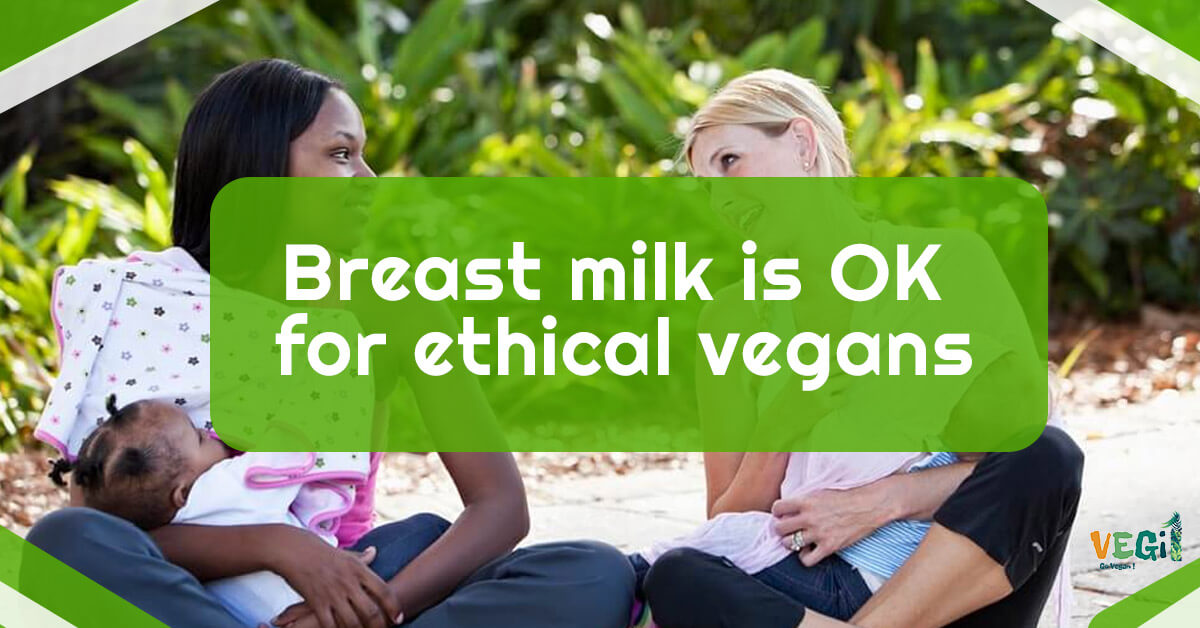
Can Vegan Mothers Breastfeed Their Babies?
I’ve been vegan for more than 10 years and it was before my baby was born and now I breastfeed my child and also, I was actually following a personalized meal plan that I got from my nutritionist and it was working pretty well for me and when I went to a doctor to check my child’s overall health, my doctor told me that he had no dietary or health problems and now I can tell you that vegan diets are completely safe and also beneficial for you and your baby based on my own personal experience.
But if you want to see what health organizations and doctors say, you can search about them but we assure you that famous authentic websites like Healthline.com suggest vegan diets for breastfeeding mothers.
The only thing that might be risky with vegan diets is the deficiency of some macronutrients and that can be easily fixed by running a blood test to see what is wrong with your body or what kind of deficiency you may have.
Another easy solution is getting a meal plan from a nutritionist to make sure that you are healthy and you are following a complete diet so there will be no worries.
Like her mother, Jessica will become a vegan.
I was very excited when I was pregnant and proud of myself for becoming a mother, and on the other hand, I knew that I had a heavy responsibility. According to the nutritionist’s advice, during pregnancy, I took prenatal vitamin and omega 3 supplements (algae-based) and a 50,000 UI vitamin D capsule monthly. After Jessica was born, the prenatal supplement was changed to a breastfeeding supplement and I continued the rest of the supplements.
In the first month after giving birth, I used high-fat foods including nuts, peanut butter, avocado, etc. to produce more milk. I asked my dietitian a lot of questions and he gave me suggestions in all fields. My next advisor for choosing vegetarian food was the internet, which introduced good and delicious recipes. Oatmeal every morning, fenugreek, sweet potato and fresh vegetables were the most important foods in my diet.
Non-vegan moms seemed to have more trouble producing breast milk than me as a vegan. According to nutritional references, it is recommended to breastfeed for at least 12 months. I plan to breastfeed Jessica until the 18th month and then feed her vegan solids. We can talk about vegan recipes for children in future articles.
Conclusion
I, Eli, as a vegan, consent to give my breast milk to my daughter, Jessica, as the best nutrient for my child, and I follow the rules of veganism. He can choose whether he wants to be a vegan or not. It was a wonderful bonding experience for me and my daughter.
Also, don’t forget to share your opinion with us in the comment section.
References:
https://www.veganfriendly.org.uk/is-it-vegan/breast-milk/
https://plantprosperous.com/is-breast-milk-vegan/
https://www.lllc.ca/vegan-diet
This article was written based on personal experience and valid researches by health organizations, hope it helps!


